Health is ensconced in the Brazilian Constitution as a fundamental right. Consequently, Brazil is known for offering some of the most comprehensive treatment options in the world, including low-cost generic medications. However, by June 2009, when the Through Positive Eyes workshop was held in Rio de Janeiro, it was already clear that AIDS care in Brazil, while among the best in the world, remained less than perfect. Workshop participants specifically referenced the lack of HIV testing facilities in the early days, the frequent misdiagnosis of women, and the difficult side effects caused by early generations of antiretroviral therapy. Another theme that emerged loudly was the heightened vulnerability of young people and sexual minorities. Notably, almost all the project participants were infected with HIV not as adults but as teenagers.
Brazil’s AIDS epidemic, as of 2009
- Number of people living with HIV
- 650,000
HIV Prevalence
- Adults (15–49 years)
- 0.5%
- Female sex workers
- 4.9%
- Men who have sex with men
- 5.9%
Treatment
Universal access to treatment since 1996.
- Numbers on treatment
- 215,000
- % of those living with HIV who are receiving it
- 33%
Key Events
- 2003
- First generic antiretroviral medications (ARVs) produced domestically.
- 2007
- First compulsory license to import low-cost generic ARVs.
- 2009
- National strategies to combat HIV-related stigma directed to LGBTQI citizens.
Update 2019
900,000 Brazilians are living with HIV. 66% of these are on treatment and 94% of those in treatment have no detectable virus. HIV prevalence among men who have sex with men has declined to 10.5%.
Despite anti-stigma programs, in 2017 it was estimated that 12.1% of sex workers and 62% of men who have sex with men avoid health care due to stigma and discrimination.
Brazil’s progress on HIV is now under threat from the newly elected conservative president, Jair Bolsonaro. In 2019, he removed LGBTQI rights from the purview of the Human Rights Ministry, and he opposes state-funded treatment for people living with HIV.
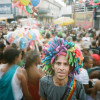
Albany
I used to be a very naughty person, very crazy, and totally irresponsible. I had no love for my body. I had no love for myself. When I discovered my diagnosis, I was very fragile. The doctor told me …
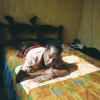
Alcione
I used to live in a guesthouse, where I paid rent daily to the madam. Not paying meant having to sleep in the streets. I didn’t want that. So I slept during the day and hustled at night to be able to …
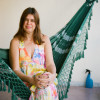
Aninha
I am a happy person, but it hasn’t always been like this. I was rebellious. I didn’t want to take the medication. I was sick with AIDS, bedridden, in a wheelchair. I almost died but didn’t, thanks to …
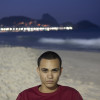
Artur
I was diagnosed when I was nineteen. I went to a local health center to have an anonymous test done. I was sick, throwing up. When I passed by the place where everyone else had their HIV tests done, …
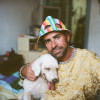
Cazu
Living with HIV, I have achieved many things that I never thought possible—public recognition, great roles both in the cinema and in the theater— all since I became HIV- positive. This has given me …
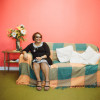
Cida
I never thought that AIDS could one day be part of my life. I am a retired teacher, and I always guided my students to take care of themselves, to get tested and treated. I thought I was immune. When …
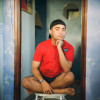
Cleverson
I realized I was gay when I was nine years old. But actually understanding it took some time. At twelve, I had a friend who was openly gay and I wanted to find out more about it through him, to get …
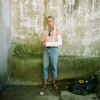
Francisco
My name is Francisco. I live in Rio de Janeiro. I have AIDS. I traveled from Recife, through Natal, through Paraíba. I was kicked out of my house. I am like a nomad. I started traveling, traveling, …
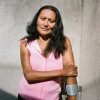
Gladys
I learned I was HIV-positive in 1991. How I caught it, I don’t know. When the doctor told me about my status, I went home and locked myself in for a week. I didn’t want to go outside, didn’t want to …
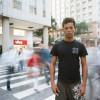
Jonatha
My partner and I met at a nightclub when I was fifteen years old and he was sixteen. I fell in love with him at first sight. He looked healthy. I could not tell he was ill. It was when I was clearing …
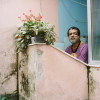
Jorge
HIV changed my life a lot, but it had a good side too, which is that I started doing prevention work, raising awareness so that other people don’t become infected with HIV. In the beginning, I …
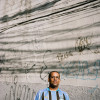
José Luiz
When I found out that I was positive, my only fear was my partner’s reaction. I went out, got drunk, and went home. I couldn’t sleep. When my partner woke up, I told her. She stared at me for ten …
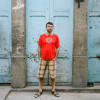
Leonardo
In the late 1980s, a lot of my friends were dying. I thought to myself, “I will not have the test done, because if I have it, I will be dead in six months, one year’s time. I will let the bomb drop.” …
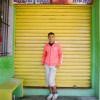
Leotino
I came to Rio from the central western region of Brazil, bordering Bolivia, to grow as a gay man, to come out, because with my family I couldn’t do this. I also came to Rio to get a better job and to …
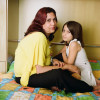
Mara
I was infected with HIV during my first relationship, at the age of eighteen. I thought I was outside the risk groups, that AIDS was only found among homosexuals and drug users. I thought that I—who …
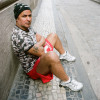
Marcos
I started in the gay scene as a rent boy. My father was a preacher, and my whole family is Christian. I never had to tell my family about my homosexuality, but I never had to hide it either. They …
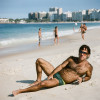
Paulo
When I received my diagnosis in 1988, I wasn’t nervous. I never had any opportunistic diseases, never had anything. I simply went and got tested because I thought I should. I had no symptoms. The …
Supporters
Through Positive Eyes in Rio de Janeiro—Olhares Posithivos—was organized in partnership with the Brazilian Interdisciplinary AIDS Association (ABIA), with major funding from Brazil’s STD/AIDS Prevention Department, housed within the Ministry of Health, and The Ford Foundation.